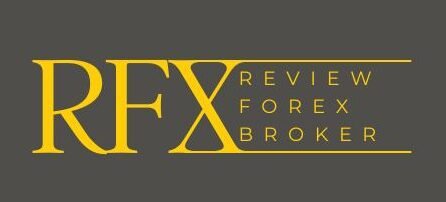Forex trading offers exciting opportunities for profit, but it’s essential to navigate the market with a clear understanding of the associated costs. Hidden fees and charges can significantly impact your trading profitability if not carefully managed. This blog will help you identify and avoid hidden fees and charges in Forex trading, ensuring that you keep more of your hard-earned money.
Understanding Hidden Fees and Charges
In Forex trading, fees and charges can take various forms, often not immediately obvious to traders. Here are some common hidden fees and charges to be aware of:
- Spreads:
The spread is the difference between the bid and ask price of a currency pair. While it’s a standard cost in trading, the spread can vary between brokers and may be wider than advertised, especially in volatile markets. - Commissions:
Some brokers charge a commission on trades in addition to the spread. Commissions can be a fixed amount or a percentage of the trade value. - Swap/Overnight Fees:
If you hold a position overnight, you may incur swap fees, also known as rollover fees. These are interest charges or credits based on the interest rate differential between the two currencies in the pair. - Account Maintenance Fees:
Some brokers charge account maintenance fees or inactivity fees if your account remains dormant for a certain period. - Deposit and Withdrawal Fees:
Fees may be associated with depositing or withdrawing funds from your trading account. These fees can vary depending on the payment method used. - Currency Conversion Fees:
If you deposit or withdraw funds in a currency different from your trading account’s base currency, you may incur currency conversion fees.
How to Avoid Hidden Fees and Charges
- Research Broker Fees Thoroughly:
- Read the Fine Print: Carefully review the broker’s fee structure, including spreads, commissions, and any other charges. Look for detailed information in the broker’s fee schedule or terms and conditions.
- Compare Brokers: Compare the fee structures of different brokers to find the most transparent and cost-effective options.
- Choose a Broker with Transparent Pricing:
- Check Spread Types: Opt for brokers that offer competitive and transparent spreads. Some brokers provide fixed spreads, which can be easier to predict and manage.
- Verify Commission Details: Ensure that you understand any commissions that may apply and how they are calculated.
- Monitor Swap/Overnight Fees:
- Use Swap-Free Accounts: If you want to avoid swap fees due to religious reasons or personal preference, consider opening a swap-free Islamic Forex account.
- Be Aware of Fees: If using a regular account, check the swap fees for the currency pairs you trade, as they can vary widely.
- Watch Out for Account Maintenance and Inactivity Fees:
- Read Account Terms: Understand the broker’s policies on account maintenance and inactivity fees. Some brokers charge fees if your account is inactive for a certain period.
- Keep Your Account Active: Regular trading or periodic deposits and withdrawals can help avoid inactivity fees.
- Understand Deposit and Withdrawal Fees:
- Check Payment Methods: Different payment methods may have varying fees. Choose methods with lower or no fees for deposits and withdrawals.
- Review Broker Policies: Confirm if the broker covers or reimburses any payment processing fees.
- Avoid Excessive Currency Conversion Fees:
- Deposit and Withdraw in Base Currency: Where possible, make deposits and withdrawals in the base currency of your trading account to avoid conversion fees.
- Check Conversion Costs: If currency conversion is necessary, check the fees associated with it and consider brokers that offer favorable conversion rates.
- Utilize Broker Tools and Resources:
- Fee Calculators: Some brokers provide fee calculators on their websites to help you estimate trading costs. Use these tools to assess the potential costs before placing trades.
- Customer Support: Contact customer support if you have questions about fees or need clarification on the broker’s pricing structure.
- Review Account Statements Regularly:
- Track Costs: Regularly review your account statements to track fees and charges. This will help you identify any unexpected costs and ensure that they align with what was advertised.
- Audit Transactions: Regular audits of your transactions can help you spot discrepancies and address any issues with your broker promptly.
Conclusion
Avoiding hidden fees and charges is crucial for optimizing your Forex trading profitability. By thoroughly researching broker fees, choosing transparent pricing models, and understanding the costs associated with trading, you can minimize the impact of hidden charges on your trading results. Keep a close eye on your account activity, and don’t hesitate to ask your broker for clarification on any fees. With these strategies, you’ll be better equipped to manage your trading costs and enhance your overall trading experience. Happy trading!

